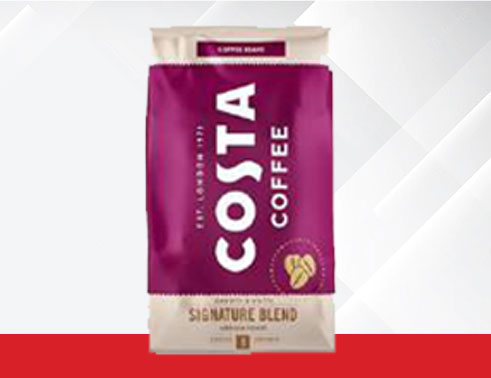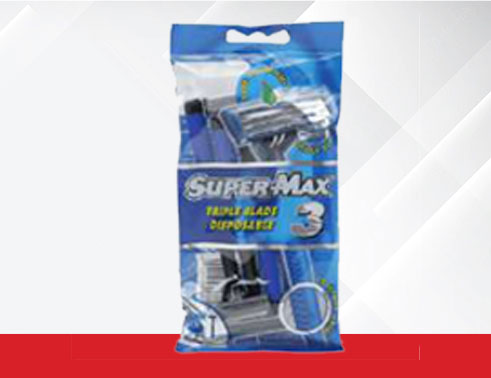The Middle East and North Africa (MENA) label market was forecast to grow by 3.9 percent in 2020, according to a report by Alexander Watson Associates. But, afflicted by Covid-19, the year ended blemished by economic uncertainty.
The MENA label industry reports that the demand for labels was hampered for a time due to labor, operational and supply chain challenges, exacerbated by the travel bans and lockdowns in other countries. But being essential service providers for the food, personal hygiene and pharma industries, label converters in the region were comparatively less affected than companies in other industries such as tourism.
Sayed Shamsuddin, the owner of UAE-based Al Hadiqa Self Adhesive Manufacturing, estimates a 25 to 30 percent drop in sales of labels in the logistics, cargo and retail industry.
BN Pandey of AL Maha Printers based in Oman noticed a 20 percent decline in demand for BOPP labels and 35 percent for self-adhesive products. Converters suffered from small margins margin, lack of work, reduced workforce and the spread of the virus. AL Maha’s business declined by 10 percent.
Ajay Mehta, MD of SMI Coated Products, says that essential businesses were allowed to operate with necessary precautions. However, expats flocked back to their home countries and caused a shortage of labor.
Overhead costs were a problem. Sudhir Samant, a label industry veteran and consultant, explains that employee shifts were reduced, and salaries and raw material costs were renegotiated.
Converters had to find new suppliers to source raw material due to the differing lockdown norms across countries.
Raja Gandhi, MD and owner of Hexxa Flexible Packaging, faced supply chain disruptions due to the lockdown in India, where the company sources its polyester films. Hexxa turned to new suppliers from China and other countries.
Since most raw material is imported in the Middle East and North Africa, shipments were delayed due to suspended air cargo and logistics and lesser manpower at ports. ‘Orders took three times longer to complete,’ Pandey reveals.
Pankaj Patel, CEO of Printech ME, highlights that installation and training was a problem due to the travel ban. Potential customers were not ready to conduct business remotely. Road transport within the Gulf Corporation Council states and Middle East had stopped. Sea freight was the only option for exports in states like Saudi Arabia, Bahrain, Kuwait and Qatar, which increased shipping cost.
Signs of recovery
Despite the raging virus that showed no signs of slowing down, economies reopened and businesses heaved a sigh of relief.
Ranesh Bajaj, director of Vinsak, informs that the consumption of labels and flexible packaging for the food sector has now gone up. Some converters are now developing a second production site and strategies for staff to work on alternate days.
Raja Gandhi reports that self-adhesive labels saw a surge in the Middle East due to rising consumption of hand sanitizer in PET bottles and reclosable labels for wet wipes. Hoarding of food materials by consumers was another significant factor for increased label business. ‘Our orders multiplied by four times.’
Most of Printech’s customers have now adapted to remote machine installation, support and training, reports Pankaj Patel.
The region saw a number of investments during the pandemic. Vinsak installed Lombardi Synchroline 430 presses at Al Hadiqa in Sharjah and Aquarius Printing Press in Dubai. It also signed with the Spanish converting equipment and tooling manufacturer, Tecnocut, to expand the manufacturer’s presence in South Asia and MENA. Jordanian converter Label World invested in ICR3 450 slitter rewinder from Lemorau. Raja Gandhi adds that the Dubai market saw at least four or five investments in UV narrow web flexo presses, but the machines are stuck at ports and awaiting installation.
Lecta acquired Avery Dennison’s offset sheets business to manufacture Fasson and Jac self-adhesive papers in Europe and MENA. Miraclon signed with Dubai-based Phoenix Technologies to distribute its products in Arab states, including Bahrain, Kuwait, Oman, Qatar, Saudi Arabia and the UAE. Dantex named Dubai-based Afra International as its new distributor for the MENA region to expand the group’s new digital division.
Bajaj notes that food and e-commerce packaging are growing. Brands are looking at sustainable materials and biodegradable materials are being researched. The MENA market is getting closer to Europe in terms of material quality and consumer spending. There is growth in stand-up pouches, which are replacing PET bottles. However, there is a need for responsible disposal, collection and recycling of plastic materials to establish a circular economy.
Gandhi says that labels for the pharma, healthcare and hygiene product segment saw a multifold increase in demand. Food and personal care labels were buoyant, but the cosmetic sector saw a drop. Sayed believes that technology will evolve to limit human to human contact. Automation will encourage productivity and social distancing.
Printech’s Pankaj Patel reports interest from customers in fully automatic registration systems such as Omet’s Vision System, Kocher + Beck’s GapMaster for using flexile dies longer, and open-architecture machines from Prati where customers can add processing capabilities on the machine as their needs evolve.

Laminated Films

Center Seal Pouches
Flexible Packaging
We offer our customers flexible packaging solutions which extend product shelf life and contain high barrier properties to retain product freshness.

